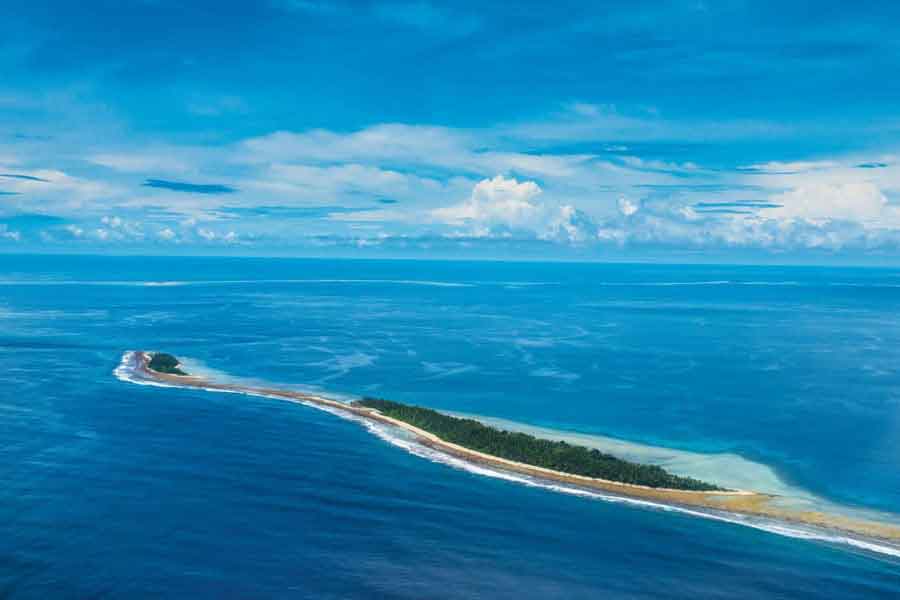
Perhaps due to being orphaned by continents, lacking in height, or too poor in natural resources, it is difficult to locate the solitary Island of Tuvalu on a map. A tiny black dot halfway between Hawaii and Australia marks the mere 26 square kilometers inhabited by only 12,000 souls. There are only eight doctors in the entire country, where no books have ever been written. A black dot, too lonely on the map, pointing to an island that rises only 5 meters above sea level.
Tuvalu was born poor and forgotten in the middle of the South Pacific. Its name gained some resonance in 2004 when it drew attention that such a poor country paid a high fee and sent a representative to the International Whaling Commission to vote in favor of Japan’s whaling activities. It was suspected that the fee and the trip were paid for by Japanese fishing companies in exchange for small favors and an attempt to secure a majority in a lamentable election, after all, Tuvalu is a country. A country that is being evacuated due to the inevitable invasion of the sea.
Meanwhile, world leaders gather to discuss the theoretical global warming. A disturbing theory suggests that as the climate changes, polar ice will melt, increasing the volume of water in the oceans and encroaching on coastal lands. Preventing it would require investing a significant amount of money, and what world leader would be willing to spend so much money on something that may happen many years after their own term ends or even after their own life ends? They consider it a problem of the future and believe that future people will fix it in due time.
But in Tuvalu, global warming passed its practical exam: the waters are rapidly engulfing the island, proving that the future is today. It highlights that what used to occur in a geological era now happens within a human lifetime. Tuvalu is the first on the list, the most prominent. Others will follow, many kilometers of coastline will disappear if the process is not stopped in time. Tuvalu is the warning, the example, the demonstration of what is to come. Yet Tuvalu remains anonymous and unknown. The press worldwide seems to ignore it; after all, the apocalypse lacks popularity.
Tuvalu will soon be a name echoing in the empty wind, whispered as a secret, as something that never happened. History will remember it as the first country to disappear, but not the only one. Meanwhile, humanity looks the other way; they prefer not to realize that scientific predictions have come true and that the terrifying theory has been proven. All world leaders prefer to ignore it, except one, the ruler of Tuvalu who, sitting on a lonely rock that was once a beach, weeps and realizes that there is no longer a country to govern.
«One cannot defend what one does not love, and one cannot love what one does not know.»

